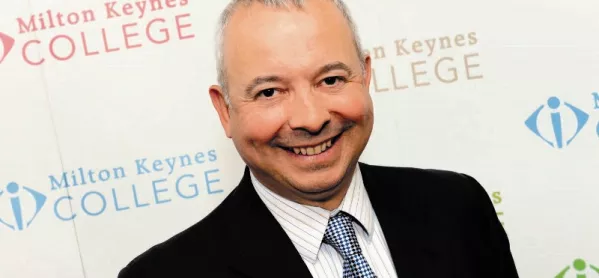Opinion: ‘Never-ending love between merged colleges is hardly a forgone conclusion’

“Mergers and chains” is the current hue and cry ringing out from the Department of Business, Innovation and Skills (Bis) in the direction of FE colleges.
A recent paper sent to principals around the country is as close as one is likely to see as an admission by a government department that it has cut the sector to the bone and beyond. Integration, collaboration, call it what you will; the advice is that those colleges, which are on the verge of financial collapse, should huddle together and pool their resources to stay afloat.
If this language sounds extreme it’s worth taking note of the assessment of FE’s state of financial health as diagnosed by the National Audit Office (NAO). Five years ago some 12 colleges were pronounced financially inadequate. Two years ago the figure had more than doubled to 29. The NAO predicts that by the end of this year, 70 colleges, more than double the number again, will be in serious money trouble.
What then could be more logical than grouping together and sharing back-office functions, slimming down the management, collective purchasing and so on? On the face of it, nothing could be more sane and sensible as a means of maintaining the service at a lower cost to the taxpayer. Mergers and takeovers happen in the corporate world all the time and if the market thinks they work then surely the same would inevitably be true in education? Remember Time Warner buying AOL? Now no doubt it seemed like $165 billion well spent in 2001, although less so the next year when reporting the largest-ever corporate loss of $99 billion as a direct result of the failed merger.
For those of a more venerable vintage, remember the gathering together of successful British motoring marques into the behemoth of British Leyland (BL)? Whither Austin, Morris and Wolseley now, and how much better do Jaguar and Land Rover perform since BL died its final death? The statistics show that mergers and acquisitions fail more often than marriages, so never-ending love between merged colleges is hardly a forgone conclusion.
Which is not to say that it’s always a bad idea. The UK is an example of a merger that has worked remarkably well for a very long time. But even bedded-in for hundreds of years, cultures remain different and potentially antagonistic, as the close-run Scottish referendum and subsequent explosion of nationalist support illustrates. Colleges have cultures too. They have differing values, management styles and philosophies. Crucially, their consumers are different too, and that is an iceberg upon which many business mergers have foundered. Take a close look at any two colleges and the courses they offer and there are likely to be similarities but also subtle differences, reflecting the variations in the communities they serve. The risk in college mergers runs from, on the one hand, a complete failure to compromise on any of these factors, to, on the other, so much compromise that all the best bits of the jigsaw pieces are hacked off to make everything fit together.
Geography is a potential hazard. Distances on maps are all well and good, but in regions where there is significant social divergence coupled with transport inadequacy it is hard to imagine how much benefit there could be. Equally, a grouping of colleges specifically connected by a major travel corridor like a motorway or major rail line could work, if all the other factors are in place. But, and it’s a big but, the farther-flung outposts of the empire will always be likely to be resentful of the centre; always feel that things are “going on” without anyone telling them and be convinced that they are starved of cash while “head office” takes the cream.
Then there’s the cost. Mergers are expensive, as the shareholders at Time Warner discovered, and even when they go well significant investment has to be made first before all those economies of scale kick in. Add to that that the Bis report calls for more financial expertise to be introduced to college management (slyly hinting that in spite of the cuts we would all be fine if only we could count without removing our shoes and socks). Presumably said experts (no doubt recruited from the private sector) will wish to be well remunerated - something guaranteed to raise a hearty cheer from college staff whose salaries have been steadily squeezed since austerity began.
Mergers and looser cooperative structures can work if the values, the management styles, the needs of the students in each location, the needs and understanding of the staff in each location, the needs of business served in each location, transport links and back office functions can all be made to dovetail harmoniously and productively with each other. According to KPMG, 83 per cent of corporate mergers are failures. The question is, what would a similar lack of success do to the government’s plans for 3 million successful apprenticeships, or to post-16 education in Britain as a whole?
Keep reading for just £1 per month
You've reached your limit of free articles this month. Subscribe for £1 per month for three months and get:
- Unlimited access to all Tes magazine content
- Exclusive subscriber-only stories
- Award-winning email newsletters